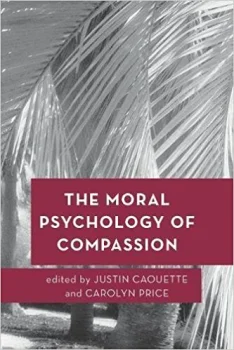I was often told, especially earlier in my education, to avoid excessive use of jargon. More generally, we as philosophers are accused of writing articles that are difficult to understand, at least in part because of our use of jargon. I do think that we should be careful about the overuse of technical terminology, especially without initial explanations thereof, but I have little further to say about that. Instead I would like to point to a tension between the caution against using jargon, and other writing advice commonly given to philosophy (and other) students.
Many of us routinely emphasize to our students that their philosophical writing should be clear and concise; that they should eliminate fluff, unnecessary words and sentences, and so on. But there’s a tension here between this sort of advice, and the advice not to use a lot of specialised terminology. My main worry is that using specialised vocabulary increases clarity when the reader understands that vocabulary, while also reducing the length of whole essays, as well as of individual sentences.
Here’s an easy example that comes to mind. Take the maxim, “Don’t conflate an epistemological question with a metaphysical one”, and a less jargon-y translation, “Don’t run together a question about what we (can) know, believe, or have evidence for, with a question about what actually exists or how those things relate to one-another”. The second version is roughly three times as long.
Now I’ll be the first to admit that this is not the best example, but I think it illustrates my point fairly well. Especially when there are word limits, there is at best a fine balance that needs to be struck between accessible language and brevity.
I’m curious what our readers think about this.



Alison K McConwell
May 17, 2016
As someone once said to me, “the existentialists were the last rockstar philosophers of our time. They sat in parisian cafes smoking cigarettes and talking to the public about their ideas.” Jargon, I think, gets in the way of that sort of thing.
LikeLike
Mike Steiner
May 17, 2016
I experience the tension between being perfectly accurate and being well understood on a daily basis. Words are tools, so it depends what you want to use them for, and there is no right or wrong – just more or less effective. If you want to be philosophically precise, then by all means, use the jargon. But if the audience doesn’t understand the jargon, then you will fail to get understanding, and you will have a hard time influencing. If you can keep things simple by the lights of the audience, and only very rarely throw in some jargon to indicate that there is deeper sophistication behind the otherwise simple language, then I think you will likely have great success in influencing…
LikeLike
Aaron Thomas-Bolduc
May 17, 2016
Mike and Allison – I agree in principle with both of you, but try writing e.g. a 1000 word extended abstract w/o jargon. The problem may be with discipline standards as a whole, but I do think there is a tension between brevity and clarity, and accessibility, at least in the analytic tradition.
LikeLike
Aaron Thomas-Bolduc
May 17, 2016
Sorry, Alison, for misspelling your name.
LikeLike